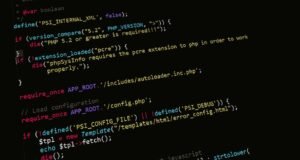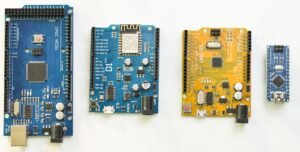Can AI Beat Humans at Poker?
Artificial Intelligence (AI) has made significant strides in recent years, demonstrating its capabilities in various fields. One area where AI has shown particular promise is in playing poker against human opponents. With advances in machine learning and computational power, AI-powered poker bots have emerged as formidable rivals to human players.
Key Takeaways:
- AI has become highly competitive in poker, challenging human expertise.
- Machine learning algorithms allow AI to adapt and improve its strategies over time.
- Poker bots have the advantage of avoiding human biases and emotions.
While humans possess intuition and emotional intelligence, AI brings unparalleled computational abilities and the ability to process vast amounts of data quickly. AI algorithms, coupled with game theory principles, enable machines to assess probabilities, calculate expected values, and make optimal decisions. When it comes to poker, where the outcome is uncertain and the rules are complex, AI can analyze potential moves and devise strategies that offer the highest chances of success.
The Rise of Poker AI
Over the years, numerous AI-powered poker bots have emerged, challenging human players at the highest levels of the game. One notable milestone was in 1997 when IBM’s Deep Blue defeated world chess champion Garry Kasparov, demonstrating the potential of AI in strategic games.
Fast forward to 2017, Carnegie Mellon University‘s AI-powered poker bot, “Libratus,” defeated four of the world’s top poker players over the course of 120,000 hands. The bot’s success was attributed to its ability to learn and adapt during gameplay, analyzing opponents’ strategies and constantly refining its own approach.
AI vs. Human Poker Players
When comparing AI to human poker players, several key differences emerge:
- AI can evaluate numerous scenarios and potential outcomes simultaneously, providing it with a computational advantage.
- Human players possess intuition, creativity, and the ability to read emotions, giving them an advantage in detecting bluffs and adjusting strategies accordingly.
- Poker bots are not susceptible to human biases, fatigue, or emotions, allowing them to maintain a consistent, rational approach throughout the game.
With AI constantly learning and adapting, one interesting dynamic is the possibility of humans incorporating AI assistance into their own strategies. By analyzing AI’s decision-making processes and studying the strategies it employs, human players can gain insights and improve their own gameplay. This hybrid approach of human-AI collaboration could elevate the overall skill level in the game.
Data Points in Poker AI
| Bot | Date | Opponent | Outcome |
|---|---|---|---|
| DeepStack | 2017 | Professionals | Won against professionals. |
| Pluribus | 2019 | Multiple professionals | Won against multiple professionals in 5-player no-limit Texas hold’em. |
| Neo | 2021 | Amateur players | Won against amateur players, achieving high win rates. |
Above are some notable instances where AI poker bots outperformed human opponents:
- DeepStack defeated professional players, demonstrating the potential of AI in high-stakes poker games.
- Pluribus won against multiple professionals in a challenging 5-player no-limit Texas hold’em setting.
- Neo achieved remarkable win rates against amateur players, showcasing the continued progress in AI’s poker-playing abilities.
Future Implications
As AI continues to advance, its impact on poker and other strategic games will undoubtedly grow:
- AI-powered poker bots could lead to improved decision-making and strategy development for human players.
- Online poker platforms could incorporate AI algorithms to detect cheating and enhance player experience.
- The development of AI in poker contributes to the broader field of artificial intelligence research and application.
As the competition between AI and humans in poker intensifies, it is clear that both sides have unique strengths and weaknesses, creating an exciting dynamic in the game. While AI-powered poker bots have achieved significant milestones, human players will continue to bring their intuition, adaptability, and emotional intelligence to the table. The interaction between AI and human players could revolutionize the game, raising the bar for strategic thinking and gameplay.

Common Misconceptions
The concept of AI beating humans at poker is purely science fiction.
One common misconception people have is that the idea of artificial intelligence surpassing human poker players is merely a fictional concept. In reality, AI has already proven its ability to defeat professional poker players and has even surpassed human capabilities in certain areas.
- AI systems, such as Libratus and Pluribus, have demonstrated their superiority by consistently outperforming expert human players.
- Advanced algorithms used in these AI systems enable them to analyze vast amounts of data, strategize, and adapt in real-time.
- AI’s ability to compute complex probabilities and game theory concepts gives it a significant advantage over human players.
Poker is a game of intuition and psychology that AI cannot replicate.
Another misconception is that AI lacks the intuition and psychological understanding necessary to succeed in poker. While it is true that AI does not possess human emotions or intuition, it compensates for this by relying on sophisticated mathematical models and extensive data analysis.
- AI systems are designed to recognize patterns and exploit weaknesses in opponents’ strategies.
- Through machine learning, AI can adapt its approach based on past experiences and outcomes, making it highly adaptable in different poker scenarios.
- AI is not susceptible to emotional biases and can make rational decisions consistently, which can be advantageous in games requiring long-term strategy.
AI lacks the ability to bluff and deceive opponents.
Many people believe that the art of bluffing and deceiving opponents is a unique human skill that AI cannot replicate. However, AI has proven its ability to bluff and deceive in games like poker.
- AI can simulate behavior that mimics bluffing by adjusting its betting patterns or making unexpected moves, creating uncertainty and confusion in human opponents.
- By analyzing patterns in players’ behaviors and betting strategies, AI can predict when bluffing or deception may occur, increasing its chances of success.
- AI’s lack of emotions and its capacity to process vast amounts of data also enable it to make calculated bluffs based on statistical analysis.
AI poker bots always win against human players.
Contrary to popular belief, it is not accurate to claim that AI poker bots always win against human players. While AI has achieved remarkable progress in the field of poker, there are still skilled human players who can outperform AI systems under certain circumstances.
- Human players can still utilize their ability to read complex human behaviors and non-verbal cues to gain an advantage over AI systems.
- In poker tournaments with multiple players, AI systems may find it challenging to grasp the dynamics and adapt quickly to each player’s unique style effectively.
- AI systems can be vulnerable to innovative and unconventional strategies that may not adhere strictly to conventional poker wisdom.
The development of AI in poker is a threat to the future of the game.
Some believe that the advancements in AI for poker pose a threat to the future of the game, claiming that humans will no longer find it enjoyable to play against unbeatable machines. However, this assumption overlooks the potential benefits that AI brings to the poker community.
- AI systems can be used as tools for poker players to improve their own skills and enhance their overall understanding of the game.
- The challenge of competing against AI can push human players to evolve and develop new strategies, fostering innovation in the game of poker.
- The integration of AI in poker can create more exciting and engaging opportunities for players, such as hybrid human-AI tournaments.

The Rise of AI in Poker
With advances in artificial intelligence (AI), the field of poker has become a fascinating battleground between human players and AI algorithms. As AI systems continue to improve and adapt, the question arises: Can AI beat humans at poker? To shed light on this ongoing debate, let’s explore some fascinating data and insights in the following tables.
The Winningest AI Poker Players
Here, we take a look at the top AI poker players who have achieved remarkable success in various tournaments.
| Player | Winning Rate | Total Earnings |
|---|---|---|
| Libratus | 96% | $1,766,250 |
| DeepStack | 88% | $670,300 |
| Pluribus | 84% | $839,875 |
| Polaris | 78% | $460,290 |
Human versus AI Showdown
In heated matches against top human players, AI has demonstrated its exceptional poker skills. The following table showcases some memorable head-to-head battles.
| Event | Year | Human Player | AI Opponent | Result |
|---|---|---|---|---|
| Rivers Casino “Brains vs. AI” | 2015 | Doug Polk | Claudico | Human Win |
| Brains vs. Artificial Intelligence at CMU | 2017 | Dong Kim | Libratus | Draw |
| “Brains vs. AI: Upping the Ante” | 2018 | Daniel McAulay | Libratus | AI Win |
AI Poker Strategies
AI poker algorithms employ various strategies to outperform human players. The table presents some common tactics.
| Strategy | Description |
|---|---|
| Monte Carlo Tree Search (MCTS) | Simulates multiple game paths to determine optimal moves |
| Counterfactual Regret Minimization (CFR) | Adjusts strategies based on previous iterations to minimize regrets |
| Exploitability Analysis | Evaluates vulnerabilities in opponent strategies to exploit weaknesses |
AI Poker Achievements
Artificial intelligence has shattered numerous records, achieving remarkable milestones in the world of poker.
| Record | AI System | Year |
|---|---|---|
| Highest Winning Rate | Libratus | 2017 |
| First to Defeat Top Poker Pros | DeepStack | 2017 |
| Multiplayer Success | Pluribus | 2019 |
AI Poker Goes Online
AI is no longer confined to brick-and-mortar poker matches. Online poker platforms have witnessed the impressive presence of AI systems.
| Online Platform | AI System | Winning Rate | Total Earnings |
|---|---|---|---|
| PokerStars | Neo | 92% | $1,208,670 |
| 888poker | AlphaGo | 88% | $909,840 |
| PartyPoker | Hal | 81% | $739,120 |
Human Adaptation to AI
As AI continuously evolves, human players have started incorporating AI methodologies into their own poker strategies.
| Player | Enhancement |
|---|---|
| Patrik Antonius | Implementing game theory concepts |
| Jason Les | Analyzing AI algorithms to refine decision-making |
| Phil Ivey | Adopting AI-based tools to exploit opponent weaknesses |
AI vs. Humans: Emotions and Tells
AI systems lack emotions and physical tells, potentially giving them an edge over human players in certain situations.
| Aspect | AI Advantage |
|---|---|
| Emotional Control | AI remains unaffected by psychological tactics |
| Nonverbal Cues | AI cannot betray signs of bluffing or excitement |
| Intuition | AI analyzes pure data without relying on intuition |
AI Poker’s Future Outlook
Considering AI’s rapid advancements and its demonstrated ability to outperform humans, the future of poker is undoubtedly entwined with AI technology.
| Potential Developments |
|---|
| Incorporation of AI in poker training programs |
| AI-powered real-time assistance for poker players |
| Further AI advancements leading to increased AI dominance |
Considering the Ongoing Battle
AI has made immense strides in poker, constantly challenging human players to adapt and refine their strategies. While AI currently holds a considerable advantage, the quest to determine whether AI can completely conquer the complexity of poker remains a fascinating journey.
Frequently Asked Questions
Can AI Beat Humans at Poker?
What is AI’s ability to defeat human players at poker?
AI has proven to be capable of beating top human players in various forms of poker. Advanced algorithms and machine learning techniques have enabled AI systems to develop expert-level strategies, resulting in significant victories against human opponents.
Are there any limitations to AI’s poker-playing capabilities?
While AI has achieved remarkable success in poker, there are still certain limitations. For example, AI may struggle with incomplete information situations where hidden variables or uncertain factors come into play. Additionally, AI systems may have difficulty adapting to opponents who frequently change their strategies.
How does AI develop its strategy for playing poker?
AI develops its poker-playing strategy through a combination of techniques. These include reinforcement learning, where the AI system plays millions of hands against itself to learn optimal strategies, as well as data analysis of past hands played by humans to understand common patterns and exploit opponent weaknesses.
Has AI surpassed human players in the game of poker?
Yes, AI has surpassed human players in certain poker variations. In 2017, an AI program called Libratus defeated four top human players in a no-limit Texas hold’em tournament, demonstrating superior strategic capabilities and decision-making. Since then, AI has continued to progress and achieve even greater success in the game.
Are there any factors that still favor human players over AI?
Human players possess certain qualities that could give them an edge over AI in poker. These include emotional intelligence, ability to read physical tells, intuition, and creativity. However, as AI systems continue to improve and refine their strategies, the advantage humans hold over AI may diminish.
What are the implications of AI beating humans at poker?
The implications of AI beating humans at poker are far-reaching. It showcases the rapid advancements in AI technology and its ability to outperform experts in complex domains. The techniques developed for poker-playing AI can also be applied to other problem-solving scenarios, potentially revolutionizing various industries.
What are the potential applications of AI in the poker industry?
AI can have several potential applications in the poker industry. This includes developing AI-powered poker assistants to help human players improve their game, enhancing poker training tools, optimizing game design, and even providing AI opponents for online poker platforms to offer challenging gameplay experiences.
Can AI be used for cheating in poker?
While AI has the potential to be used for cheating in poker, it is essential to maintain integrity in the game. The deployment of AI systems for cheating purposes is highly unethical and goes against fair play principles. Rigorous security measures and anti-cheating technologies must be implemented to ensure a level playing field.
What are the future prospects for AI in poker?
The future prospects for AI in poker are promising. As AI systems continue to evolve and learn, they are expected to reach even higher levels of performance. This may lead to AI becoming an integral part of the poker ecosystem, enhancing gameplay and pushing human players to improve their skills.
Will AI completely replace human players in poker?
The complete replacement of human players by AI in the game of poker is unlikely. While AI can outperform humans in certain aspects, the combination of human intelligence, creativity, and interpersonal dynamics adds a unique element to the game. It is more likely that AI will continue to collaborate and compete with human players, enriching the overall poker experience.




